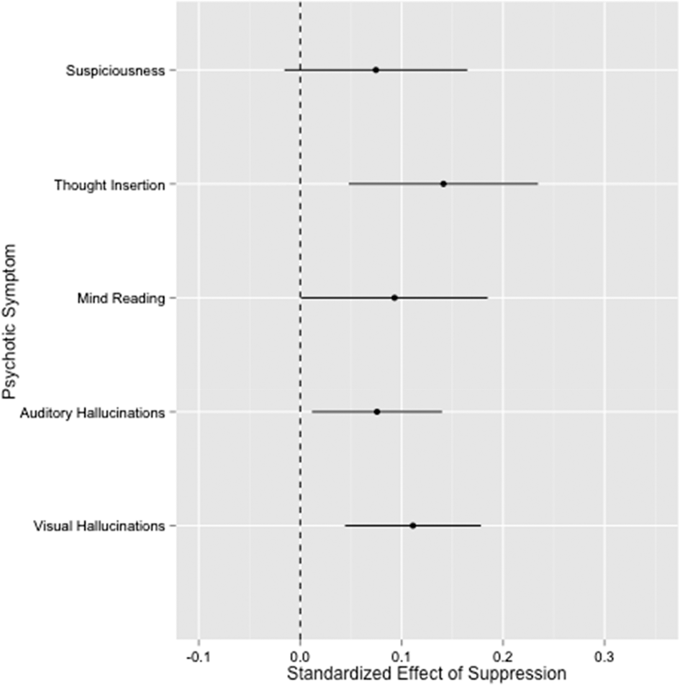npj Schizophrenia ( IF 5.4 ) Pub Date : 2020-03-24 , DOI: 10.1038/s41537-020-0096-6 David Kimhy 1, 2 , Amanda Lister 3 , Ying Liu 3, 4 , Julia Vakhrusheva 4 , Philippe Delespaul 5 , Dolores Malaspina 1 , Luz H Ospina 1 , Vijay A Mittal 6 , James J Gross 7 , Yuanjia Wang 4

|
Emotion regulation (ER) difficulties are ubiquitous among individuals with schizophrenia and have been hypothesized to contribute to stress sensitivity and exacerbation of psychotic symptoms in this population. However, the evidence supporting this link is equivocal, potentially due to previous studies’ reliance on retrospective assessments of ER and psychosis, as well as lack of consideration of putative moderators such as emotion awareness. To address these limitations, we employed experience sampling method using mobile electronic devices to investigate the links between momentary in vivo use of ER strategies (mER), emotion awareness, and psychotic symptoms during daily functioning. Fifty-four individuals with schizophrenia completed assessment of mER and psychotic symptoms, along with traditional retrospective measures of ER and symptoms. Use of mER suppression predicted significant increases in momentary experiences of thought insertion, mind reading, auditory and visual hallucinations. Use of mER reappraisal predicted significant increases in momentary experiences of suspiciousness, thought insertion, and mind reading. Emotion awareness, driven primarily by difficulties identifying feelings, moderated the impact of ER on psychotic symptoms. There were no associations between retrospective measures of ER and symptoms. Our results indicate that, among individuals with schizophrenia, emotion awareness significantly impacts the relationship between use of ER and exacerbations in psychotic symptoms during the course of daily functioning. Our results highlight the need to incorporate emotion awareness and regulation difficulties into the development of treatment models and interventions for psychosis. In addition, our results underscore the need to employ in vivo, high time-resolution assessment methods to study dynamic clinical phenomena such as ER and psychotic symptoms.
中文翻译:

情绪意识和调节对日常功能中精神病症状的影响
情绪调节(ER)困难在精神分裂症患者中普遍存在,并被认为会导致该人群的压力敏感性和精神病症状恶化。然而,支持这种联系的证据是模棱两可的,可能是由于之前的研究依赖于对急诊室和精神病的回顾性评估,以及缺乏对情绪意识等假定调节因素的考虑。为了解决这些局限性,我们采用移动电子设备的经验采样方法来研究日常功能期间体内瞬时使用 ER 策略( m ER)、情绪意识和精神病症状之间的联系。54 名精神分裂症患者完成了对 ER 和精神病症状的评估,以及对 ER 和症状的传统回顾性测量。使用m ER 抑制可预测思维插入、读心术、幻听和幻视的瞬时体验显着增加。使用m ER 重新评估可以预测怀疑、思维插入和读心术的瞬时体验显着增加。主要由识别感受困难所驱动的情绪意识调节了 ER 对精神病症状的影响。ER 的回顾性测量与症状之间没有关联。我们的结果表明,在精神分裂症患者中,情绪意识显着影响日常功能过程中 ER 的使用与精神病症状恶化之间的关系。我们的结果强调需要将情绪意识和调节困难纳入精神病治疗模型和干预措施的开发中。此外,我们的结果强调需要采用体内、高时间分辨率评估方法来研究动态临床现象,例如 ER 和精神病症状。



























 京公网安备 11010802027423号
京公网安备 11010802027423号